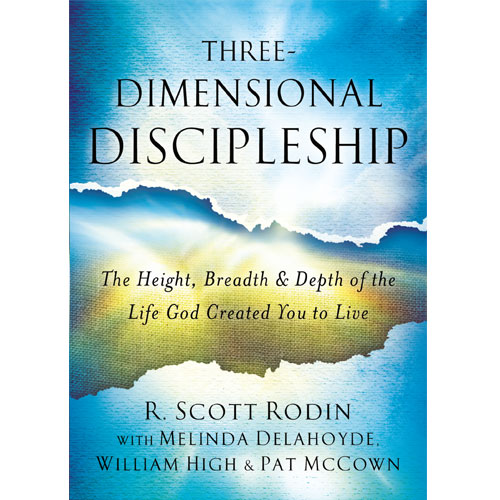The Broken Hallelujah
Make 2018 your year of honest faith

You’ve likely heard the song, “Hallelujah.” Most people love the dramatic, mesmerizing melody. Leonard Cohen released the song in 1984 and since then it has been performed by a “who’s who” of artists and featured in scores of movies, TV shows and music videos.
If you don’t know it (or even if you do) take a moment and listen to this amazing performance by Pentatonix: https://www.youtube.com/watch?v=LRP8d7hhpoQ
The song always moves me to tears, but I could never figure out the lyrics, so I ignored them and just enjoyed the powerful melody. When I watched this Pentatonix rendition, I had to figure out what Cohen was saying in his choice of such cryptic language. I read through all the verses (fifteen in all, only about eight of which every get performed) and I read various stories and interpretations of their meaning. It reminded me of my generation trying to figure out what Don McLean’s ‘American Pie’ was all about, positing everything from the death of Buddy Holly to the second coming of Christ.
The brilliance of the lyrics of ‘Hallelujah’ is their openness and even invitation to a myriad of interpretations. Some see only an ode to sex, others a deeply religious struggle. Cohen said the song represented absolute surrender in a situation you cannot fix or dominate. Rabbi Ruth Gan Kagan affectionately called it a ‘hymn of the heretic’.
When I considered the meaning behind the lyrics, I found something that spoke to my soul. I believe there is a powerful message for us as we enter 2018. While it’s clearly not a Christian song, it is a profoundly honest song. I chose six of the verses that spoke to me the most. I admit to reading my own interpretation into them, but here is the message I found.
Hallelujah is the Hebrew word meaning ‘Glory to the Lord’. As Christians, we identify it as the proclamation we make in times of joy and celebration, the sigh of deep spiritual engagement and soul-stirring worship. What Cohen offers us is a different way of considering the source of the expression. What if our ‘Hallelujah’ was a plea from the depths of our brokenness? What if it was more of a cry of despair to a God of grace than a shout of joy from a mountaintop?
To offer this interpretation, Cohen opens the song by referencing King David’s adultery with Bathsheba and Samson’s beguilement at the hands of Delilah.
Well I’ve heard there was a secret chord
That David played and it pleased the Lord
But you don’t really care for music, do you?
Well it goes like this:
The fourth, the fifth, the minor fall and the major lift
The baffled king composing HallelujahHallelujah
Hallelujah
Hallelujah
HallelujahWell your faith was strong but you needed proof
You saw her bathing on the roof
Her beauty and the moonlight overthrew ya
She tied you to her kitchen chair
And she broke your throne and she cut your hair
And from your lips she drew the Hallelujah
Hallelujah is spoken by two deeply flawed Biblical heroes who cried to God in the midst of their brokenness, both undone by forbidden love. A ‘baffled King’ trying to reconcile God’s grace with his own sinfulness. A fallen strongman seduced by a lover who ‘broke your throne and cut your hair’ and drew from his lips the anguished Hallelujah.
Cohen goes on to speak of the disappointment and pain of lost love:
But baby I’ve been here before
I’ve seen this room and I’ve walked this floor
You know, I used to live alone before I knew ya
And I’ve seen your flag on the marble arch
And love is not a victory march
It’s a cold and it’s a broken Hallelujah
When dreams are shattered and hopes are crushed, when ‘love is not a victory march’ there remains the Hallelujah. It’s cold and broken, but it remains just the same. From here, Cohen confesses his own doubts about God while clinging to His grace.
You say I took the name in vain
I don’t even know the name
But if I did, well really, what’s it to you?
There’s a blaze of light in every word
It doesn’t matter which you heard
The holy or the broken Hallelujah
Cohen admits to his doubts and questioning, claiming not to ‘even know the name’. For many commentators, the next three lines are the nexus of the entire song. ‘There’s a blaze of light in every word’ is a testament to the value of every human life, every human cry from every human situation. Some come from the holy and some from the broken, but all are Hallelujah. I prefer to read in this the reality of the image of God in every person, the universal atonement of Christ’s death on the cross and proclamation from John 3:16 that ‘God so loved the world’. This speaks to a God whose ears are inclined to every voice that cries out to Him without regard for the religious pedigree or faith of the petitioner. He hears them all, the holy and the broken, and that means he hears you and me.
In the next verse the lyrics move to the depths of our doubts and our loneliness.
Maybe there’s a God above
But all I’ve ever learned from love
Was how to shoot somebody who outdrew ya
And it’s not a cry that you hear at night
It’s not somebody who’s seen the light
It’s a cold and it’s a broken Hallelujah
What I find remarkable is the unbreakable link between the depth of despair and the cry of Hallelujah. “It’s not a cry you hear at night” because at night is when we wrestle with our deepest fears and pain. Yet it still comes in this cry out to God, this defiant affirmation of His grace. The cold and broken Hallelujah comes from our darkness. “It’s not somebody who’s seen the light” means it’s not just a shout from life’s highpoints but a despairing, tortured yet defiant shout; cold and broken, yet Hallelujah nonetheless.
Finally, the last verse is often left out, yet to me it brings the song full circle.
I did my best, it wasn’t much
I couldn’t feel, so I tried to touch
I’ve told the truth, I didn’t come to fool you
And even though it all went wrong
I’ll stand before the Lord of Song
With nothing on my tongue but Hallelujah
Again, the themes of confusion, disappointment and failure are redeemed by the triumphant proclamation that when we stand before the ‘Lord of Song’ all that will matter is that from our tongues there comes the Hallelujah.
This lyric reminded me of the stanza from one of my favorite hymns by George Matheson when he wrote,
O Joy that seekest me through pain,
I cannot close my heart to thee;
I trace the rainbow through the rain,
And feel the promise is not vain,
That morn shall tearless be.
Matheson encourages us to ‘trace the rainbow through the rain’. Cohen provokes from us a ‘cold and broken’ Hallelujah in the midst of our doubts and suffering. Both are a message we need to hear.
Today we stand at the threshold of a new year. Given the chaos of 2017, we look to the fresh and empty pages of our new calendars wondering what the days ahead might bring. Perhaps in 2017 there were few times when our heart so overflowed that we shouted ‘Hallelujah’. Perhaps we face the new year with a sense of foreboding, fearing that even fewer prospects for such a shout may lie ahead.
I hear in this song a plea to see the world from God’s perspective, acknowledge His sovereignty and throw ourselves into His arms carrying to Him even our darkest doubts and pain. This is just the type of honest faith that may draw many self-proclaimed ‘non-religious’ to God in 2018. As the crashing waves of unending scandals, moral confusion, anti-faith aggression and relentless narcissism pound at the shores of our previously impervious foundations, it may be the honest cry of Hallelujah that also keeps those of us who follow Jesus from being swept away.
Cohen said it this way,
“Regardless of what the impossibility of the situation is, there is a moment when you open your mouth and you throw open your arms and embrace the thing and you just say, ‘Hallelujah, Blessed be the name…’.”
Here is my challenge. What if we chose today, January 2nd, before this year has had a chance to besiege us; what if we chose this hour before this day has drawn to a close; what if we chose this minute, before the next one presses on us the stresses and fears of the moment; what if we committed every breath of this new year to shout this affirmation as our witness to God’s absolute faithfulness and our defiance to a world spinning out of control? Will we, in 2018, utter our Hallelujah from whatever place God’s Spirit leads us or our human frailty lands us? Whether joyful and content or cold and broken, will we have ‘nothing on our tongue but Hallelujah’?
I will extol the LORD at all times; his praise will always be on my lips.
Psalm 34:1
May God lead us on that journey in 2018.





